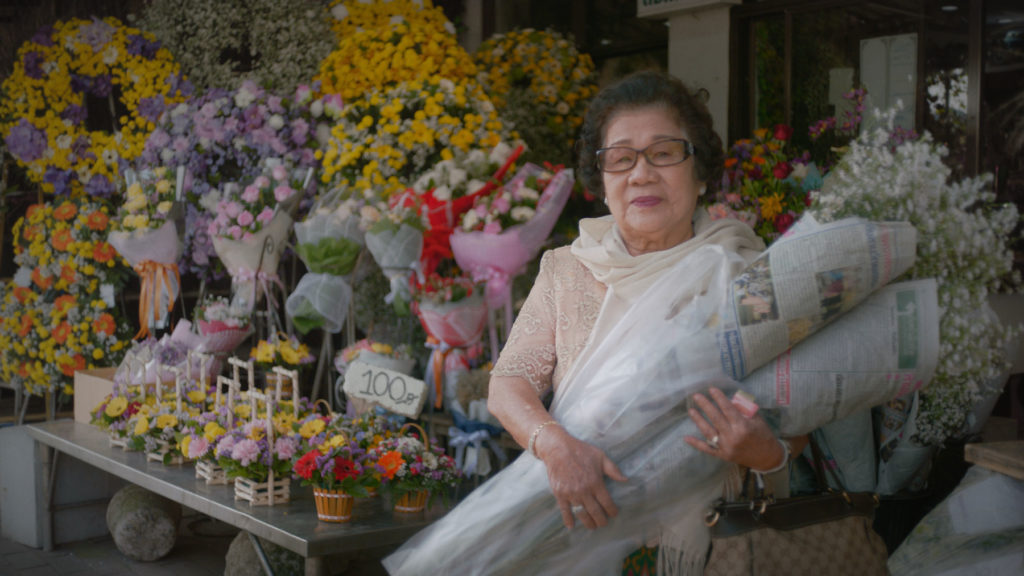Short Reflections: Southeast Asian Tracks
Determination. Perseverance. Dedication. Survival. From child soldiers to factory workers, this collection of shorts curated by PAAFF Programming Coordinator, Kacia Hyunh, uncovers the different tracks followed by those who contribute to the varied Southeast Asian experience. Filmmakers featured in our Southeast Asian Tracks short film program chatted with us about their films and their dreams. YAI NIN Director: Champ Ensminger Without spoiling anything, describe your film in 7 words or less. Ensminger: Ninlawan is a Thai boss lady. Do you have a favorite memory from making this film? Were there any challenges that you had to overcome? Ensminger: Watching my grandmother take charge of our shoot locations was a treat – in another life she could have easily been a line producer! It’s inspiring watching her take charge of a room and bark orders at her age. What do you hope to see in the future for the film industry? How do you see yourself and your work playing a role in this future? Ensminger: As much as I enjoy and have grown to love Asian American stories in film, I hope to not be confined to stories directly about the Asian American experience. People contain multitudes, and there are many Asian / Asian American storytellers that can approach the telling of genre stories – science fiction, period drama, horror, etc. – with the same values of representation that we apply in our cultural stories. What’s next for you? Ensminger: I am continuing my education with the intention of expanding into a new role in a creative agency, and excited to be mentored by a long time hero! Mama Yen Director: Jiale Hu Without spoiling anything, describe your film in 7 words or less. Hu: Disarming the “refugee” construct 50 years later Do you have a favorite memory from making this film? Were there any challenges that you had to overcome? Hu: Interviewing Yen at her kitchen alone until 1 in the morning was certainly one of my favorite and intimate memories, even more than the joyful party scene. It was a journey that I would otherwise never naturally encounter, and one that disarmed my own heart. Although it was my first project, the challenges are few despite my amateur role. Yen was the most cooperative and loving subjects to film; and I had over two semesters to polish it under wonderful mentorship. What do you hope to see in the future for the film industry? How do you see yourself and your work playing a role in this future? Hu: I hope to see a future where more films can reawaken people to our sense of collectiveness and true poverty in this given life, where cognitive, financial, and legal alienation should be alien to our culture. I hope my work would be able to stay true to this objective, and whether/how/when it would reach another person is what I’ll leave to the Mystery. What’s next for you? Hu: I have been working back in Shanghai as a video journalist since graduating from Notre Dame. This new context, being in China, has shaped my interest in postcolonial encounters and I am excited to embark on many more disarming journeys through the path of documentary filmmaking. Journeys to Freedom Producer: Melodee Mercer Without spoiling anything, describe your film in 7 words or less. Mercer: Vietnam War from a whole new perspective Do you have a favorite memory from making this film? Were there any challenges that you had to overcome? Mercer: As someone who grew up watching the Vietnam War on television, these personal stories put history in perspective. In any documentary, you walk a line between wanting the audience to learn the full story and not wanting to push your subjects too hard. This was particularly difficult with these interviews as they still bring up such raw emotions. I will forever be grateful to the people who bravely told their stories, and for their understanding that telling their stories could make a difference in the way both Vietnam Veterans view their legacy, and how the younger Vietnamese and American generations will view the war. What do you hope to see in the future for the film industry? How do you see yourself and your work playing a role in this future? Mercer: I see the film industry reinventing itself, as all of us are doing during the pandemic. In particular, I would like to see documentaries be viewed by more mainstream audiences. Most reality TV is staged and has huge viewership; documentaries are the real “reality” and should draw a regular following. I’m hoping to expand the stories told in Journeys to Freedom to a mini-series. What’s next for you? Mercer: I’ve had a 38-year career in communications. My hope is to retire from my full time job in two years and devote time to producing more documentaries, including creating a library of mini-documentaries to tell the story of the Philadelphia Vietnam Veterans Memorial, whose motto is, “A Duty to Remember.” In This Land We’re Briefly Ghosts Director: Chen-Wen Lo Without spoiling anything, describe your film in 7 words or less. Lo: The forgotten voices of Burmese child soldiers Do you have a favorite memory from making this film? Were there any challenges that you had to overcome? Lo: We encountered an extraordinary number of challenges in both pre-production and production stages. Because of the political sensitivity of the subject matter, it took us more than five months to find our lead actress. One of our locations was burnt by a wildfire just a few weeks before the shoot and it took a lot of effort to find a replacement location and we even had to revise the script due to those restraints. It took us more than 18 months to finish the short. Despite all the difficulties, I’m very proud of the lead girl and boy; both of them pulled out incredible performances as non-actors when they were cast. Working with them was the most memorable part of the experience. What do you hope to see
Short Reflections: Southeast Asian Tracks Read More »


